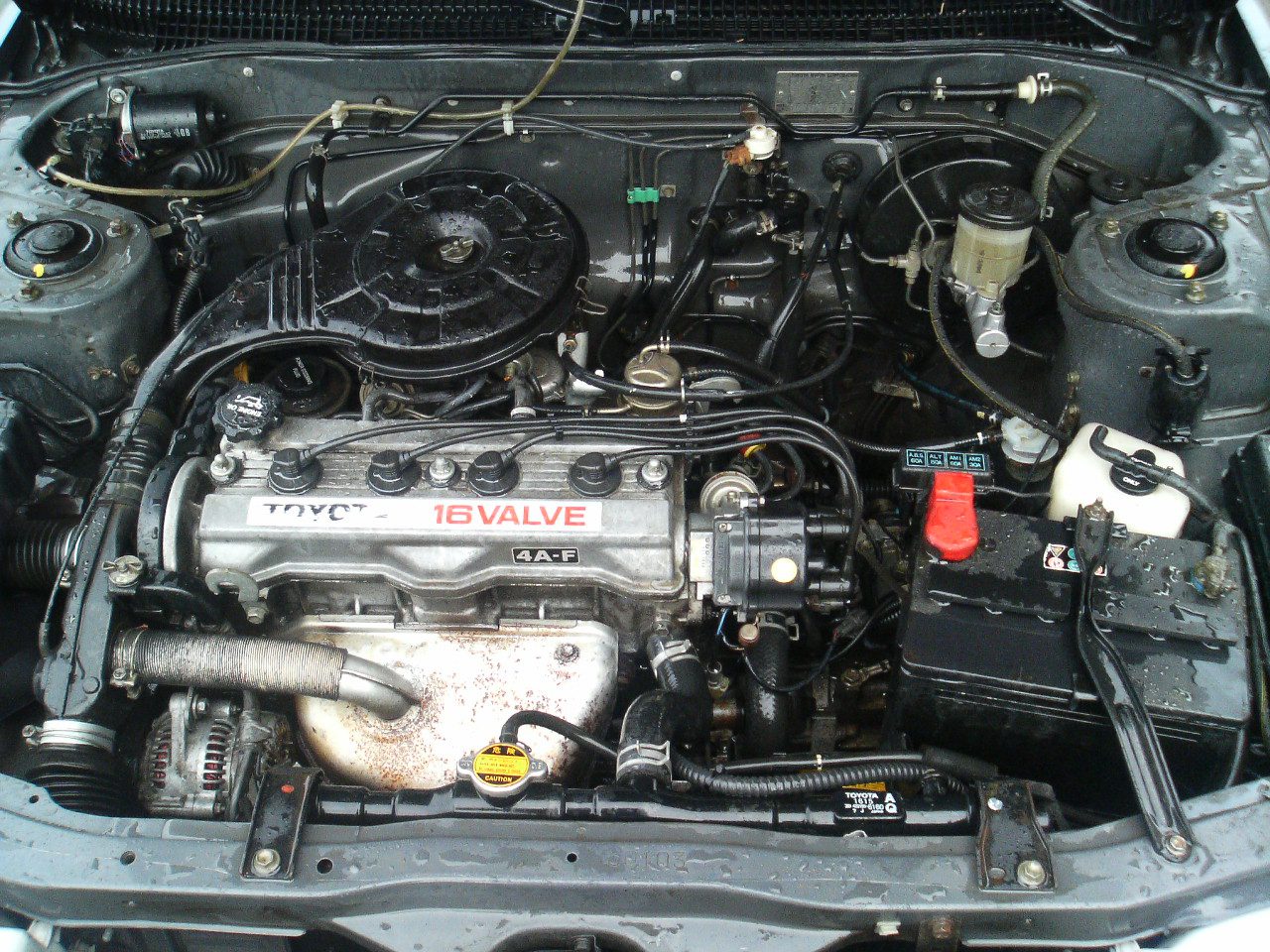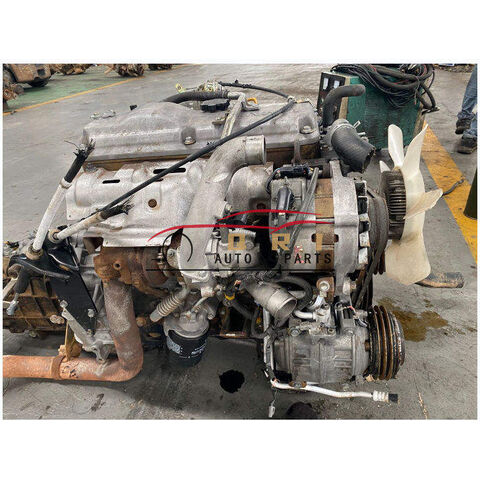Is the Toyota RunX RSI the Perfect Hatchback for You?
Is the Toyota RunX RSI the Perfect Hatchback for You?
Blog Article
Explore High Quality and Value: Your Overview to Acquiring a Pre-owned Engine
When taking into consideration the acquisition of a used engine, recognizing the intricate equilibrium between high quality and value is paramount. A detailed analysis of engine history, reliability, and condition is important to make sure a sound investment. By conducting correct examinations and research study, potential purchasers can navigate the intricacies of the market much more effectively. Nonetheless, the subtleties of service warranty alternatives and rates methods can significantly influence the general decision-making procedure. As you consider these variables, one concern stays: what specific components will inevitably guide your selection in this crucial investment?
Comprehending Engine Types
When thinking about the purchase of a second-hand engine, comprehension of the numerous engine kinds is essential for making an educated choice. Engines can normally be classified into 2 main types: interior combustion engines and electric engines. Interior burning engines, which include gasoline and diesel versions, depend on the burning of gas to create power. Gas engines are typically lighter and rev higher, making them suitable for efficiency vehicles, while diesel motor are renowned for their torque and fuel effectiveness, often favored in heavy-duty applications.
On the various other hand, electrical engines make use of electrical energy saved in batteries to power the car, supplying a cleaner choice with fewer relocating parts and decreased upkeep requirements. Within these classifications, there are better distinctions, such as four-stroke versus two-stroke internal burning engines, and different electric motor configurations.
Comprehending these differences is crucial, as they influence performance, compatibility with existing automobile systems, and long-term operational expenses. By acquainting oneself with the numerous kinds of engines available, potential purchasers can much better evaluate their requirements and choose that straighten with their car's requirements and their personal preferences.

Reviewing Engine Condition
A comprehensive evaluation of engine condition is extremely important for anybody considering the purchase of a pre-owned engine. Begin with an aesthetic inspection; look for indications of oil leakages, rust, or any kind of physical damages to the engine block. A tidy engine is frequently indicative of great maintenance practices, while extreme crud might suggest overlook.
Next, evaluate the engine's elements, including the timing belt, gaskets, and seals. Try to find deterioration, as these components can be pricey to replace. In addition, examine the engine installs, as harmed installs might lead to resonances and additional mechanical issues.
A compression test is important to evaluate inner engine wellness. Consistent compression across all cylinders shows a well-kept engine, whereas significant disparities may direct to internal damages or wear.
Paying attention to the engine throughout a startup can provide valuable understandings; any uncommon noises, such as knocking or rattling, may recommend much deeper concerns. If feasible, demand a test run to evaluate efficiency under tons. By thoroughly evaluating these variables, potential purchasers can make educated choices and secure a top quality second-hand engine.
Monitoring Engine History
Comprehending the engine's history is essential for making an educated acquisition. Knowledge of previous usage, upkeep records, and any type of past problems can substantially influence the engine's dependability and longevity. Start by asking for the vehicle identification number (VIN) or engine serial number, which allows you to map the engine's history.
Use readily available sources, such as Carfax or special info AutoCheck, to get an automobile background report. This report will certainly offer necessary insights, consisting of accident background, service records, and previous possession details. Toyota RunX RSI. Pay specific focus to any kind of indications of extreme damage or duplicated repairs, which might show underlying concerns
Inquire concerning maintenance routines performed on the engine. Regular oil changes, timing belt substitutes, and other safety nets mirror accountable ownership. Additionally, ask if the engine has undergone any kind of modifications, as non-standard alterations can influence performance and compatibility with your vehicle.
Last but not least, when possible, seek verification from a relied on mechanic that can evaluate the engine's condition based upon its background (Toyota RunX RSI). This detailed investigation will certainly assist you guarantee and avoid potential risks that your financial investment is sound and rewarding
Service Warranty and Return Policies
Investing in a second-hand engine often includes differing guarantee and return policies that can dramatically affect your choice. When taking into consideration an utilized engine, it is important to completely review the service warranty options offered by the vendor. Some vendors might provide limited service warranties that cover particular components for a defined duration, while others may offer even more thorough protection. Recognizing the problems and terms attached to these warranties is crucial, as they can influence the lasting value and integrity of your acquisition.

Furthermore, trustworthy vendors commonly supply documents that describes the warranty and return process, guaranteeing transparency. Constantly request this info prior to settling your acquisition. A distinct guarantee and return policy can give assurance and safeguard your investment, making it an essential part of the decision-making process when buying a second-hand engine.
Locating the most effective Offers
When looking for the most effective bargains on a used engine, it is crucial to carry out extensive research study and compare costs from different sellers. Start by exploring on the internet marketplaces, vehicle discussion forums, and local salvage backyards to collect a comprehensive understanding of the marketplace. Using cost comparison devices can enhance this process, highlighting competitive prices throughout different systems.

Consider timing your acquisition look what i found tactically. Seasonal changes sought after can affect rates, with certain times of the year providing far better offers. In addition, be open to negotiating rates; numerous vendors may agree to lower their asking cost, especially if the engine has been noted for an extensive period.
Verdict
In recap, purchasing a second-hand engine requires an extensive analysis of quality and value. Examining engine condition via assessments and tests, verifying its history, and understanding warranty and return policies are critical steps. Furthermore, comparing costs throughout various sellers makes certain the very best economic decision. By adhering to these standards, buyers can improve their opportunities of getting a trusted engine that meets their demands while avoiding possible mistakes connected with used acquisitions.
When taking into consideration the purchase of a pre-owned engine, comprehension of the various engine types is important for making a notified decision. Engines can typically be classified right into 2 major types: inner burning engines and electrical engines. Gas engines are generally lighter and rev greater, making them appropriate for performance automobiles, while diesel engines are renowned for their torque and fuel efficiency, often preferred in durable applications.
An extensive assessment of engine problem is vital for any person thinking about the purchase of a second-hand engine. Beginning by asking for the automobile recognition number (VIN) or engine serial number, which permits you to trace the engine's history.
Report this page